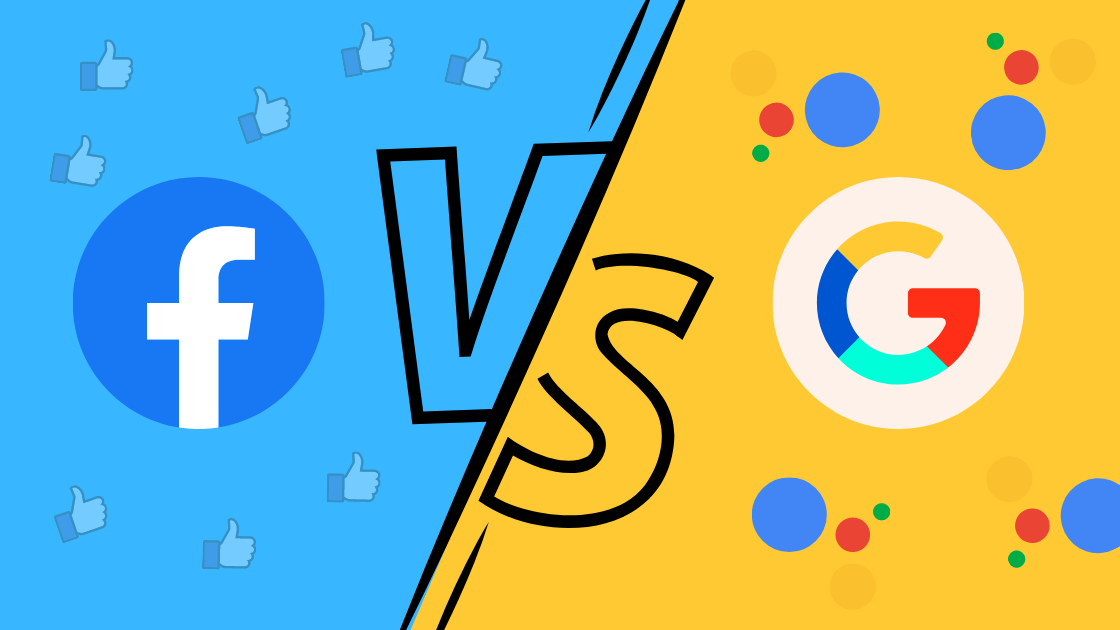Hey there, fellow marketers and business owners!
Today, we’re diving into the epic showdown between two digital advertising giants: Facebook Ads and Google Ads.
As a digital marketing expert at AS Digital in Sydney, Australia, I’ve seen firsthand how these platforms can skyrocket businesses to success.
But which one suits your business best? Let’s find out!
Understanding the Basics
First things first, let’s get acquainted with the powerhouses we’re dealing with here:
Facebook Ads:
This social media giant boasts a staggering user base of over 2.8 billion monthly active users. With such a diverse audience, Facebook allows you to target your ads based on
demographics, interests, behaviours, and even their connections.
Google Ads:
On the other hand, we have Google Ads, the king of search engine advertising. Google processes over 5.6 billion searches per day, offering businesses the opportunity to reach potential customers actively looking for products or services.
Choosing the Right Platform
To determine which platform aligns best with your business objectives, it’s crucial to understand your target audience and the nature of your products or services.
1. Audience Behavior:
Consider how your potential customers behave online. Are they actively searching for what you offer, or are they more likely to make purchase decisions while scrolling through social media?
Case Study: A local plumbing company found success with Google Ads as users actively searched for “emergency plumber Sydney.” On the other hand, an e-commerce fashion brand gained traction with Facebook Ads, reaching out to fashion enthusiasts based on their interests and past shopping behaviour.
2. Timing and Intent:
Timing is everything in advertising. Google Ads can capture users at the exact moment they are searching for specific keywords, signalling a high purchase intent. Facebook Ads, on the other hand, help build brand awareness and engage with potential customers over time.
Case Study: A travel agency focused on Google Ads during peak holiday seasons to reach users actively looking for vacation packages. Conversely, a software startup ran Facebook Ads throughout the year to build brand loyalty and maintain engagement with their target audience.
3. Ad Format:
The type of ad format you need also plays a significant role in choosing the platform. Google Ads predominantly feature text-based ads, while Facebook offers a variety of visually engaging formats, including image, video, carousel, and slideshow ads.
Case Study: An interior design firm leveraged Facebook’s visually appealing carousel ads to showcase their portfolio, while a legal consultancy relied on Google’s text-based ads to highlight their specialised services.
4. Budget and Cost-Effectiveness:
Your advertising budget also influences your decision. While both platforms offer flexibility, the cost-per-click (CPC) on Google Ads can be higher, especially for competitive keywords.
Case Study: A small startup with a limited budget found greater cost-effectiveness with Facebook Ads, reaching a broader audience for less, whereas an established online retailer allocated a higher budget to Google Ads, given the intent-driven traffic and higher conversion rates.
5. Tracking and Analytics:
Accurate tracking and comprehensive analytics are essential to measure the success of your campaigns. Google Ads provides detailed insights into search queries, conversion rates, and more, while Facebook Ads offers data on engagement, audience behaviour, and ad relevance.
Case Study: An online education platform utilised Google Ads to track keyword performance and optimise their campaigns for higher enrollments, while a nonprofit organisation relied on Facebook Ads to measure social impact through post engagements and shares.
Conclusion
So, which platform wins the battle between Facebook Ads and Google Ads? The truth is, there is no one-size-fits-all answer. The key is to understand your business goals, audience behaviour, and advertising objectives.
In a nutshell, Facebook Ads can help you build brand awareness and engage with a diverse audience, while Google Ads excel at capturing users with high purchase intent. It’s all about leveraging the strengths of each platform to complement your business objectives and ultimately drive growth.
At AS Digital, we understand the nuances of these advertising giants and can help craft a customized strategy that suits your business best. Whether it’s mastering Facebook’s dynamic ad targeting or conquering Google’s keyword game, we’ve got you covered.
So, what’s your verdict? Are you Team Facebook or Team Google? Let us know in the comments below! And if you need any assistance with your digital marketing journey, feel free to reach out to us. Happy advertising!


